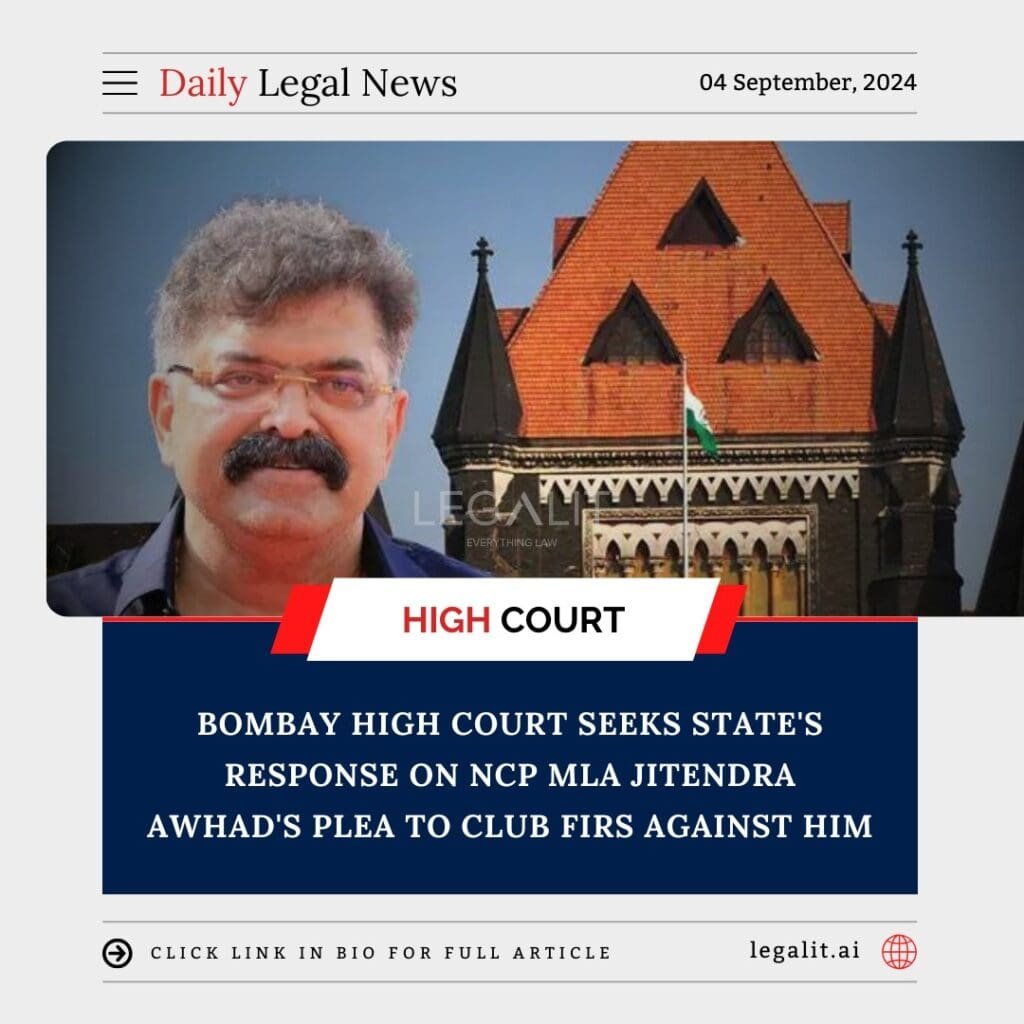
The Bombay High Court has sought a response from the Maharashtra state government on a petition filed by Nationalist Congress Party (NCP) MLA Jitendra Awhad, who is seeking to club multiple First Information Reports (FIRs) registered against him. Awhad’s plea argues that the FIRs, which relate to similar incidents, should be consolidated to avoid multiple legal proceedings and potential harassment.
Background of the Case:
Jitendra Awhad, a senior NCP leader and former Maharashtra minister, has been named in several FIRs over incidents that allegedly occurred during public protests and political activities. These FIRs include charges related to unlawful assembly, obstructing public officials, and causing disruption during protests. Awhad contends that these FIRs stem from the same set of circumstances and should be clubbed to ensure fairness and prevent a multiplicity of proceedings.
Key Arguments in Awhad’s Plea:
- Similar Nature of FIRs: Awhad’s legal team argues that the multiple FIRs registered against him are for offenses of a similar nature and arise from related incidents. According to the plea, these cases pertain to political protests and expressions of dissent, which Awhad claims were conducted within the legal limits of democratic rights. He contends that since the FIRs are interconnected, they should be consolidated into a single case.
- Prevention of Legal Harassment: The plea emphasizes that the multiple FIRs amount to harassment and undue pressure on Awhad, impacting his ability to carry out his duties as an elected representative. The petition argues that facing several simultaneous cases in different courts could be seen as a tactic to target a political opponent and stifle legitimate political activity.
- Judicial Efficiency and Fairness: Awhad’s petition also underscores the need for judicial efficiency, stating that consolidating the FIRs would prevent a waste of judicial resources and avoid conflicting decisions from different courts. The plea maintains that clubbing the FIRs would simplify the legal process, promote fairness, and ensure a more consistent outcome.
Bombay High Court’s Stand:
The Bombay High Court, while hearing Awhad’s plea, has directed the Maharashtra state government to file its response to the petition. The court has sought clarification on the state’s position regarding the multiple FIRs and whether they can be consolidated. The court’s decision to seek a response indicates its intent to carefully consider both sides of the argument before making a ruling.
Possible Legal and Political Implications:
- Impact on Political Activities: If the High Court agrees to club the FIRs, it could have a significant impact on political activities and the legal strategies of public figures facing multiple cases. It could set a precedent for how similar cases are handled in the future, particularly for politicians who often face multiple complaints over their actions in the public sphere.
- Reduction of Legal Burden: For Awhad, a decision to club the FIRs would reduce his legal burden, allowing him to focus on a single consolidated case rather than dealing with multiple cases in different courts. This could also mitigate the perception of political vendetta or legal harassment against him.
- Clarification of Legal Standards: The case could lead to a clearer understanding of the legal standards for clubbing FIRs in India, particularly in cases involving political figures. The court’s ruling may offer guidance on what constitutes “same transaction” under the law, providing a more definitive framework for future cases.
- Political Dynamics in Maharashtra: The case has potential political ramifications in Maharashtra, a state currently governed by the coalition led by the Bharatiya Janata Party (BJP) and the breakaway faction of the Shiv Sena. The outcome of Awhad’s plea could influence the political strategies of both ruling and opposition parties, especially if the court’s decision is perceived as favoring or opposing a particular political camp.
Conclusion:
The Bombay High Court’s decision to seek a response from the Maharashtra state government on NCP MLA Jitendra Awhad’s plea to club multiple FIRs against him is a crucial step in determining how the case will proceed. The ruling could have broader implications for judicial efficiency, political activity, and the handling of legal complaints against public figures. As the state government prepares its response, the outcome of this case will be closely watched by legal experts, political analysts, and the public alike.